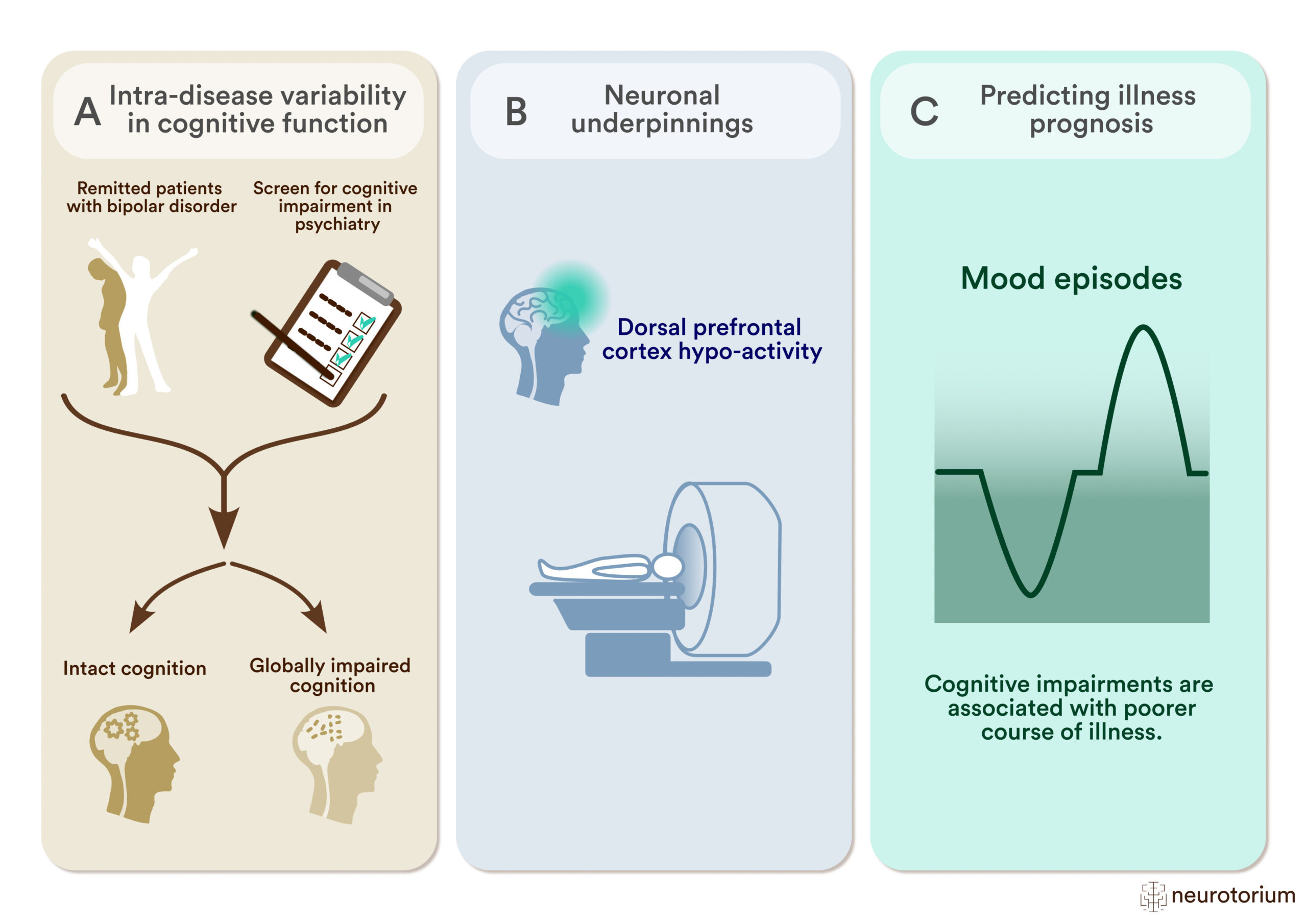Bipolar disorder is associated with marked clinical and phenotypic heterogeneity, including differences in symptomatology, medical and psychiatric comorbidities, and neurocognitive function. Intra- and inter-individual differences increase the complexity of the disorder, which complicates accurate diagnosis, management, and understanding of the underlying mechanisms of bipolar disorder.1,2





